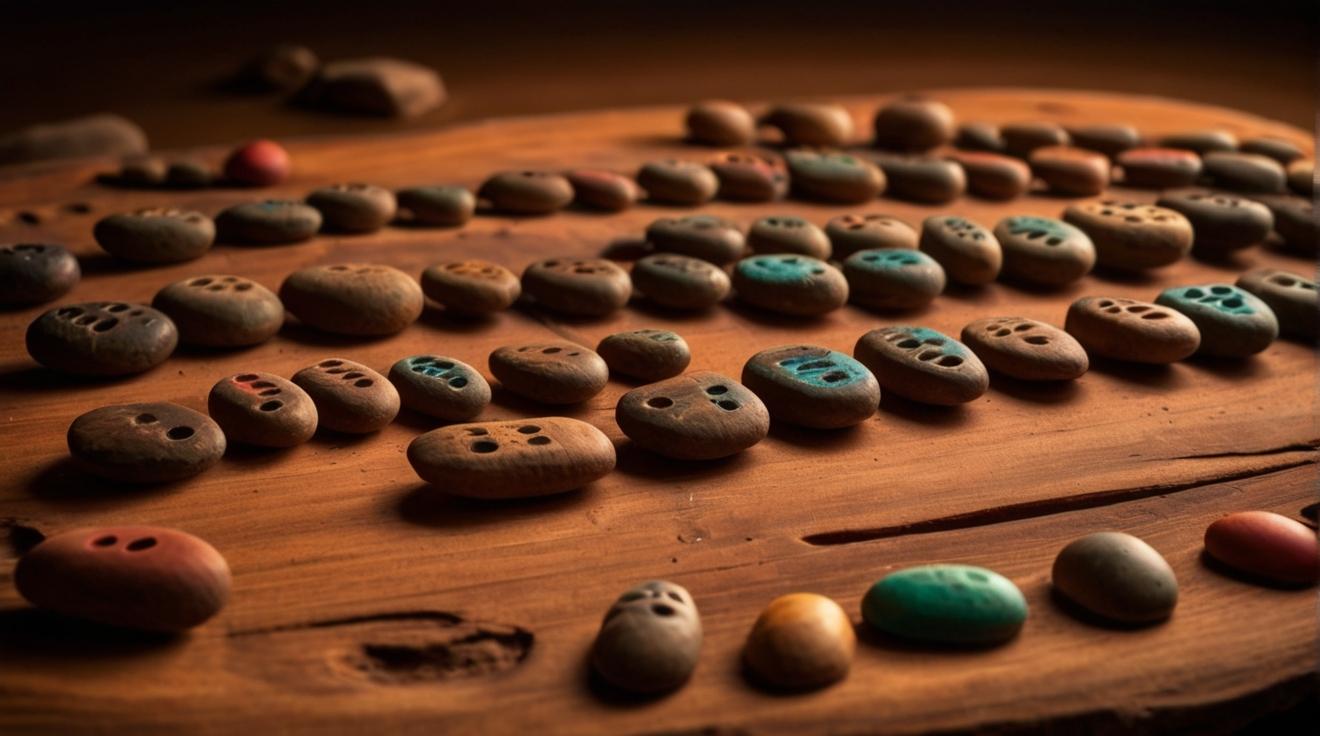Ancient Mancala Game Boards Discovered in Kenyan Wildlife Conservancy
A row of about 20 Mancala game boards has been found in a Kenyan wildlife conservancy, shedding light on the ancient pastime in East Africa.
Surprising Discovery Shifts Understanding of Ancient Life
The discovery of the Mancala game boards challenges the common perception of ancient life, suggesting that it wasn’t solely focused on survival.
Yale archaeologist Veronica Waweru highlights the potential significance of the popular strategy game in the daily lives of ancient herders.
Mancala: A Popular Game Throughout History
Mancala is a two-player strategy game that has been played for thousands of years. The oldest known playing boards date back 7,500 to 8,000 years ago.
The game’s origins are believed to be in Jordan, and it’s thought to have been introduced to East Africa through Arabian traders.
An Ancient Arcade of Mancala Boards
Veronica Waters stumbled upon a row of shallow pits carved into a rock ledge, which were later identified as game boards for Mancala.
The indents were the perfect shape and size for playing the game, resembling an ancient arcade.
Unclear Origins, but Evidence of Long-Term Use
While it’s impossible to determine the age of the game boards, erosion suggests they were used for a significant period of time.
The carved boards were gradually touched up and re-dug, indicating their use over generations.
Possible Connection to Ancient Shepherding Societies
Veronica Waweru speculates that the Mancala game boards were likely used by ancient shepherds.
The region has a modern tradition of playing Mancala while herding, potentially hinting at the historical pastime.
Ancient Pastoralists: A Life of Pleasure and Feasting
Evidence suggests that the prehistoric pastoralists who used the game boards also enjoyed dining on grilled meat.
Marks found on nearby rocks indicate they were used for sharpening metal knives, suggesting feasting, butchery, and barbecuing.
Analyst comment
Positive news: The discovery of ancient Mancala game boards in Kenya sheds light on the pastime in East Africa and challenges the perception of ancient life. The market for archaeological and historical research may see increased interest and investment as a result.













